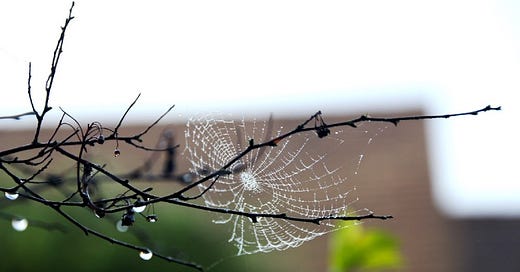The Voices of Place
During years of research and practice, I dedicated myself to the secrets teachings of places
For many years Feng Shui gave me a voice. During years of research and practice, I dedicated myself to its secrets and teachings, followed its ancestral steps, and brought it renewed to the here and now.
From one perspective Feng Shui, as deep ecosystem literacy, is, in fact, timeless and cross-cultural, being present in distinct and particular locations in different parts of the globe. Of course, I speak of the intrinsic and reciprocal knowledge of places that have been with us for millennia, of that first and visceral relationship, not necessarily shaped by Chinese metaphysics or entangled with Chinese culture. Honoring its cultural legacy, Feng Shui was the portal through which I entered another understanding and perception of the world, of its rhythms and cycles.
By understanding places, I understood myself.
However, I want to clarify what Feng Shui means to me and the fundamental pieces of this integrating vision of reality.
First, it is not a tool for individual harmony, but rather a set of contextual practices of communal abundance. At its genesis, this primordial relationship with the places we are and live has nothing to do with absolute rules “of the best place for the bed or the stove,” or the “harmony of my home.” It is, in fact, a community practice of crisis and abundance management, whose function is to keep the ecological community alive and thriving, well-nourished, nurtured, and in good relationship with the living context they inhabit. So, this ancient art reads weather patterns, predicts catastrophes, and looks for the best place to live prosperously, with clean water and surrounding food.
It is taking care of landscapes full of life, where the spirits of the place have not yet been tamed or mutilated.
Secondly, when we apply this art in our modern orthogonal homes, we forget its beginnings and try to use it for (exclusively) personal benefit, for our harmony and abundance (which today exchanges the valuable flow of life with that of money). We look for suitable recipes for the best locations for the couch, the bed, or the stove, to avoid catastrophes (remnants of the ancient fundamental practice of Feng Shui?).
Still, we confuse it with decoration or tidiness. We keep our homes sanitized and organized at all costs because “visual order rests the brain,” and organized environments bring a different quality of life. That’s right. But why? Have we ever thought about the millions of years of biological, biochemical, bioelectrical evolution of our bodies in deep, entangled relation to the places and landscapes they inhabit? Have we ever imagined that the enormous power of our profound vision, the one with the innate ability to discern in the distance, is the ability to detect the most delicate patterns in wild chaos? Have we ever stopped to feel how shallow and limited our background vision is today, for all the two-dimensional screens we look at for hours on end become a shadow of what once was?
How these left-brain landscapes, always orthogonal, sanitized, aseptic, and organized by a ruler, suspend our visceral sensory understanding of the world?
This constant neatness deeply limits our ability to live and understand the living, chaotic contexts that vibrate in a deep pulse guided by mysterious conductors — a limitation that flattens the discernment of patterns in the wild complexity.
Thirdly we also have the modern dissociated belief, making us look for pieces that harmonize our homes, be it furniture, candles, incense, crystals, or essential oils. Regardless of their impact from where they are extracted (when bought from unethical, mass, or unconscious suppliers), what social or ecological conditions, and what marks they leave on the land. Irreversible at times. But as long as our homes remain harmonious, we unilaterally justify it.
It turns out that none of this is ancient Feng Shui in its eco-literacy perspective, just reductive modern practices that do not represent this ancient contextual wisdom at all.
Our individual home is never disconnected from the world-home, and we cannot obliterate this relationship. At what cost and over-extraction, possibly in the global south or far away from our privileged doorstep, do we dare demand the constant “harmony of our home”?
The time to act with integrity and responsibility began more than 30 years ago. Still, we are late in assuming that our abundance and harmony are inextricably linked to the mining zones imploding entire ecosystems, communities, and children. The clothes we wear and even the food we eat and blindly buy have violent systemic costs.
This text is not meant to open a blame hole, but to give context to decide differently daily. Those who study the history of Feng Shui know it has never been apolitical, and neither has our well-being.
I believe in Feng Shui and its ancient contextual wisdom of observation and intimate knowledge of the places we inhabit and who we are.
I trust its power to look at the world in a whole and living, dynamic and active way. But to accomplish this, we must get through the door and take responsibility for the real cost of our living.
For all this, I have transformed my training and consultations, revering the delicate potency of life, for it alone guides me.




